|
|
| Keynote Speeches |
|---|
Keynote 1: Cloud-Centric Assured Information Sharing |
|
 |
Professor Bhavani Thuraisingham
The University of Texas at Dallas
USA |
|
|
ABSTRACT: Daniel Wolfe (formerly of the National Security Agency) defined assured information sharing (AIS) as one that “provides the ability to dynamically and securely share information at multiple classification levels among U.S., allied and coalition forces.” More recently National Security Agency CIO Lonny Anderson has stated that the agency is focusing on a “cloud-centric” approach to information sharing with other agencies. To address the needs of the DoD, our project is developing technologies and tools for cloud-centric assured information sharing funded by the Air Force Office of Scientific Research (AFOSR).
We initially developed two types of cloud data managers, one based on semantic web data and the other based on relational data, which are utilized as the engine for assured information sharing. Current frameworks do not scale for large RDF graphs and as a result do not address these challenges. Here, we developed a framework using Hadoop to store and retrieve large numbers of RDF triples by exploiting the cloud computing paradigm. We developed algorithms using the Hadoop/MapReduce framework to answer the SPARQL queries. We implemented XACML-based policy management and integrated it with our query processing strategies. For secure query processing for relational data we utilized the HIVE framework.
More recently we have developed demonstration systems with our European partners: Kings College, University of London and the University of Insubria Italy who are funded by EOARD (The European Office of Aerospace Research and Development). The first demonstration illustrates how information may be shared in our cloud, based on policies specified in XACML. In the second demonstration we implementing a semantic web-based policy engine and show how multiple social networks may share information on our cloud based on semantic web-based policies. For both demonstrations, we use the secure cloud data managers we have implemented.
The presentation will discuss the development we have made in cloud-based assured information sharing and discuss opportunities for international collaboration.
Dr. Bhavani Thuraisingham is the Louis A. Beecherl, Jr. Distinguished Professor in the Erik Jonsson School of Engineering and Computer Science at The University of Texas at Dallas (UTD) and the executive director of UTD’s Cyber Security Research and Education Institute. Her current research is on integrating cyber security, cloud computing and big data analytics. Prior to joining UTD in October 2004 she worked at the MITRE Corporation for 16 years including a three year stint as a Program Director at the National Science Foundation (NSF). At MITRE she led team efforts on developing secure data management systems and data mining tools. She initiated the Data and Applications Security program at NSF and was part of the Cyber Trust theme. Prior to MITRE she worked for the commercial industry for six years conducting research in data security, data management and distributed systems. She is the recipient of numerous awards including the IEEE Computer Society’s 1997 Technical Achievement Award, the ACM SIGSAC 2010 Outstanding Contributions Award, the IEEE SMC and Transportation Systems Societies’ 2010 joint award on Research Leadership in Intelligence and Security Informatics, the Society for Design and Process Science (SDPS) 2012 Transformative Achievement Gold Medal for interdisciplinary research on integrating computer sciences with social sciences and a 2013 IBM Faculty Award. She is a Fellow of IEEE, AAAS and the British Computer Society. She has published over 100 journal articles, over 200 conference papers and 12 books and has delivered over 100 keynote and invited addresses. She has five patents and is the founder of Knowledge and Security Analytics, LLC. Dr. Thuraisingham received her PhD from the University of Wales, Swansea in Theory of Computation and her earned higher doctorate (Doctor of Engineering) from the University of Bristol, England for her published work in Data Security.
|
|
Keynote 2: Cloud Bursting for Cost-Performance Efficiencies |
|
 |
Professor Albert Y. Zomaya
The University of Sydney
Australia |
|
ABSTRACT: Dynamic expansion to public clouds for overwhelming workloads (workload surges) is an appealing alternative to static provisioning of local/private computer systems. The primary benefit of such cloud bursting is cost efficiency that can be interpreted as the performance to cost ratio. For example, in the case of a given application, the cost effectiveness in using public clouds might be best realized when resource usage (or resource rental) is minimized with satisfactory application performance. In this talk, I will discuss how to scale out bag-of-tasks applications using public cloud resources of different types in terms of cost efficiency. Bag-of-tasks applications are a very common type of application in science and engineering. These applications often consist of a large number of independent tasks that can run in parallel. I will show how these tasks can be cost efficiently assigned to resources across multiple clouds, i.e., local system and public clouds.
Albert Y. ZOMAYA is currently the Chair Professor of High Performance Computing & Networking and Australian Research Council Professorial Fellow in the School of Information Technologies, The University of Sydney. He is also the Director of the Centre for Distributed and High Performance Computing which was established in late 2009. Professor Zomaya is the author/co-author of seven books, more than 450 papers, and the editor of 14 books and 19 conference proceedings. He is the Editor in Chief of the IEEE Transactions on Computers and Springer’s Scalable Computing Journal serves as an associate editor for 20 leading journals. Professor Zomaya is the recipient of the Meritorious Service Award (in 2000) and the Golden Core Recognition (in 2006), both from the IEEE Computer Society. Also, he received the IEEE TCPP Outstanding Service Award and the IEEE TCSC Medal for Excellence in Scalable Computing, both in 2011. Professor Zomaya is an ACM Distinguished Speaker, a Chartered Engineer, a Fellow of AAAS, IEEE, IET (U.K.), and a Distinguished Engineer of the ACM.
|
Keynote 3:
Secure and Minimal Architecture for Remote Attestation of Embedded Devices |
|
 |
Professor Gene Tsudik
University of California, Irvine
USA |
|
|
ABSTRACT: Remote attestation is the process of securely verifying internal state of a remote hardware platform. It can be achieved either statically (at boot time) or dynamically, at run-time. Generally, software-based attestation techniques lack concrete security guarantees, while hardware-based approaches involve dedicated security co-processors that are too costly for low-end devices. In this work, we develop a new primitive (called SMART) based on bottom-up hardware/software co-design. SMART represents a simple, efficient and secure approach for establishing a dynamic root of trust in a remote embedded device. It is aimed at low-end micro-controller units (MCUs) that lack specialized memory management or protection features. SMART requires minimal changes to existing MCUs and assumes few restrictions on adversarial capabilities. Finally, we show that a systematic top-down approach to minimal attestation architecture yields a design extremely similar to SMART.
Gene Tsudik is a Chancellor's Professor of Computer Science at the University of California, Irvine (UCI). He received his PhD in Computer Science from USC in 1991. Before coming to UCI in 2000, he was at IBM Zurich Research Laboratory (1991-1996) and USC/ISI (1996-2000). Over the years, his research interests included many topics in security, privacy and applied cryptography. He serves as the Editor-in-Chief of ACM Transactions on Information and Systems Security (TISSEC).
|
Keynote 4: Cloud Computing Programming Models - Challenges and Solutions |
|
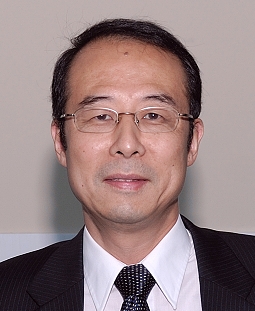 |
Professor Yi Pan
Georgia State University
USA |
|
|
ABSTRACT: Cloud computing has emerged rapidly as a growing paradigm of on-demand access to computing, data and software utilities using a usage-based billing model. Users essentially rent resources and pay for what they use and everything including software, platform, and infrastructure is as a service. In this talk, I will give a review of supercomputing, cluster computing, grid computing and cloud computing. Comparisons of these computing domains and programming models, their limitations and potential solutions will be included in this talk. In particular, I will point out the shortcomings and limitations of current cloud computing programming models and propose possible solutions. Current MapReduce model and its variants have succeeded in data-parallel applications such as database operations and web searching; however, they are still not effective for compute-intensive applications such as many graph applications. We propose several approaches to solving this problem through extension of current programming models, automatic translation from sequential codes to cloud codes, simple API and framework built on current cloud models, detection of data and task parallelism, and their efficient scheduling. Some preliminary theoretical and experimental results will also be reported in this talk.
Yi Pan is a Distinguished University Professor and Chair of the Department of Computer Science at Georgia State University, USA. He is also a "Changjiang Scholar" Visiting Chair Professor at Central South University, an IV-endowed visiting chair professor at Tsinghua University, and a guest professor at Beijing University in China. Dr. Pan received his B.Eng. and M.Eng. degrees in computer engineering from Tsinghua University, China, in 1982 and 1984, respectively, and his Ph.D. degree in computer science from the University of Pittsburgh, USA, in 1991. His profile has been featured as a distinguished alumnus in both Tsinghua Alumni Newsletter and University of Pittsburgh CS Alumni Newsletter. Dr. Pan's research interests include parallel and cloud computing, wireless networks, and bioinformatics. Dr. Pan has published more than 150 journal papers with over 50 papers published in various IEEE journals. In addition, he has published over 150 papers in refereed conferences. He has also co-authored/co-edited 37 books. His work has been cited more than 3950 times. Dr. Pan has served as an editor-in-chief or editorial board member for 15 journals including 7 IEEE Transactions. He is the recipient of many awards including IEEE Transactions Best Paper Award, IBM Faculty Award, JSPS Senior Invitation Fellowship, IEEE BIBE Outstanding Achievement Award, NSF Research Opportunity Award, and AFOSR Summer Faculty Research Fellowship. He has organized many international conferences and delivered more than 20 keynote speeches at various international conferences around the world.
|
Keynote 5:
Cloud Security: Challenge and Practice |
|
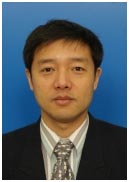 |
Professor Jin Hai
Huazhong University of Science and Technology
China |
|
|
ABSTRACT: Cloud computing represents the trend of information technology. The development of cloud computing is facing several challenges. Security issues are at the top of the list. This talk deeply analyzes the security problems of cloud computing. Cloud security problems are fundamental rooted in the cloud characteristics- service outsourcing, sharing of computing infrastructure, dynamic complexity, superlarge system scale, multi-tendency, highly centralized resources and the open federated structure. The talk lists several key security challenges to cloud computing, such as trust relationships, access control, user behavior monitoring and privacy protection.
Hai Jin is a Cheung Kung Scholars Chair Professor of computer science and engineering at Huazhong University of Science and Technology (HUST) in China. He is now Dean of the School of Computer Science and Technology at HUST. Jin received his PhD in computer engineering from HUST in 1994. In 1996, he was awarded a German Academic Exchange Service fellowship to visit the Technical University of Chemnitz in Germany. Jin worked at The University of Hong Kong between 1998 and 2000, and as a visiting scholar at the University of Southern California between 1999 and 2000. He was awarded Excellent Youth Award from the National Science Foundation of China in 2001. Jin is the chief scientist of ChinaGrid, the largest grid computing project in China, and the chief scientist of National 973 Basic Research Program Project of Virtualization Technology of Computing System.
Jin is a senior member of the IEEE and a member of the ACM. Jin is the member of Grid Forum Steering Group (GFSG). He has co-authored 15 books and published over 400 research papers. His research interests include computer architecture, virtualization technology, cluster computing and grid computing, peer-to-peer computing, network storage, and network security.
Jin is the steering committee chair of International Conference on Grid and Pervasive Computing (GPC), Asia-Pacific Services Computing Conference (APSCC), International Conference on Frontier of Computer Science and Technology (FCST), and Annual ChinaGrid Conference. Jin is a member of the steering committee of the IEEE/ACM International Symposium on Cluster Computing and the Grid (CCGrid), the IFIP International Conference on Network and Parallel Computing (NPC), and the International Conference on Grid and Cooperative Computing (GCC), International Conference on Autonomic and Trusted Computing (ATC), International Conference on Ubiquitous Intelligence and Computing (UIC).
|
Keynote 6: On Cybercriminal Professionalism |
|
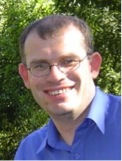 |
Dr. Jonathan Oliver
Trend Micro
Australia |
|
|
ABSTRACT: Recently cybercriminals have made significant advances in the way they go about their attacks. Many of these advances do not involve using new technologies rather these advances are based on the systematic approaches being used. Some of the changes that reflect this cybercriminal professionalism include the careful tracking of every aspect of attacks and the presentation of this tracking in user interfaces. Based on the information provided in these interfaces, cybercriminals have optimized the form of their attacks to maximise the chance that they can infect users.
In this talk, I will look at these user interfaces and tracking mechanisms and look at the subsequent changes in cybercriminal behaviour.
Dr. Jonathan Oliver leads the Board of Architect at Trend Micro. He has worked in the computer security area for 10 years focusing on antispam and web reputation research and solutions. Before joining Trend Micro, he was Chief Spam-fighter at Mailfrontier.
Jonathan holds a doctorate in machine learning from Monash University. Prior to entering the computer security area, he performed Postdoctoral research in Australia and the U.K. and acted as a data-mining consultant in the Silicon Valley for organizations such as NASA, the FAA and eBay.
|
Keynote 7: Living Dangerously in the Cyber World |
|
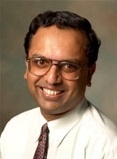 |
Professor Vijay Varadharajan
Macquarie University
Australia |
|
|
ABSTRACT: Security issues have become increasingly significant over the years and expected to continue to dominate the technology scene with the increased focus on digital economy and dramatic growth in social networking and the adoption of technologies such as cloud computing by businesses.
This talk will begin with a brief look at current trends in the technology scenery and some of the key security issues that are impacting on business and society. In particular, first I will describe what I refer to as “increasing threat velocity”, with more and more attacks and their dynamic nature, an evolving set of bad guys with different motives and sophisticated easy to use tools readily available for ordinary users to conduct severe attacks.
Then the talk will briefly outline the risks in cloud computing, where issues of security, trust and accountability are particularly significant. Cloud computing with its shared multi-tenancy environment aggravates the traditional security threats. Trust that cloud providers will provide proper security measures to counteract the security threats and ensure availability of services has become paramount.
Then the talk will look at security issues in cloud data storage and in the provision of services in the cloud. In cloud data storage, we will address policy based access to secured data stored in the cloud. We will describe a new role based encryption scheme which integrates cryptographic techniques with role based access control. In the provision of secure services, we will describe a comprehensive security architecture that brings together access control, intrusion detection and trust management for cloud services using distributed virtualisation based architectures.
Dr. Vijay Varadharajan is the Microsoft Chair Professor in Innovation in Computing in Australia at Macquarie University. He is also the Director of Information and Networked System Security Research (INSS) Group at Macquarie University. Before this he was Chair of Computing and Head of School of Computing and IT at University of Western Sydney. Previously, Vijay headed Security Research worldwide for Hewlett-Packard Labs based at European Headquarters at HP Labs Bristol, UK. He led and managed several research projects in UK, US, Germany, France and Italy and under his leadership several security research technologies were transferred into commercially successful HP products. He also headed the Technical Security Strategy Initiative at HP under the Senior Vice President of HP. Earlier, he was Research Manager of Data Security Lab at British Telecom Research Labs. U.K., Research Fellow and Lecturer in Computer Science at Plymouth and Reading Universities.
Vijay was an inaugural Board Member of International Advisors of TCPA, USA, (originally formed by HP, Microsoft, Intel, Sun and Compaq). He is on the Trustworthy Computing Advisory Board (Microsoft, USA) (announced by Bill Gates), the International Security Advisory Board SAP (Germany), Research and Technology Advisory Board SAP (USA), Australian Government’s Peak Security Advisory Group for the Minister of Broadband, Communications and Digital Economy, Australia. He is a member of the Australian Government Research Council College of Experts in Engineering, Mathematics and Informatics. He has been the Technical Board Director of Computer Science at Australian Computer Society, and Chair of the National Taskforce on E-Security.
Vijay has been on the Editorial Board of several journals including the IEEE Transactions in Dependable and Secure Computing, IEEE Transactions in Information Forensics and Security, IEEE Transactions in Computers, IEEE Transactions in Cloud Computing, the ACM Transactions on Information Systems Security, Springer International Journal of Information Security and IEEE Security and Privacy.
Vijay has had several visiting positions at different institutions over the years including Senior Research Scientist at Microsoft Research Cambridge UK, Senior Research Scientist at the Institute of Mathematical Sciences at National University of Singapore, Invited Professor at French National Research Labs (INRIA), Invited Professor at the Indian Inst. of Technology, Research Scientist at Fujitsu Research Labs, Fellow at British Telecom Research Labs., UK, Visiting Professor at eScience Institute, Edinburgh University and Visiting Professor at the Chinese Academy of Sciences.
Vijay has published over 320 papers in International Journals and Conferences, has co-authored and edited 9 books and holds 3 patents. His research work over the years has contributed to the development of several successful secure commercial systems and has generated billions of dollars of revenue. His current areas of research interest include Web Services Security, Secure Distributed Applications, Trusted Computing, Wireless and Mobile Security, Cloud Computing and Security, Internet Security, Cyber Security Attacks, Secure Social Computing, Security Policies and Architectures.
Vijay is a Fellow of the British Computer Society (FBCS), a Fellow of the IEE (FIEE), a Fellow of the Institute of Mathematics, UK (FIMA), a Fellow of the Australian Institute of Engineers (FIEAust) and a Fellow of the Australian Computer Society (FACS). He also holds a Senior Fellowship from the Australian Academy of Science.
|
Keynote 8:
IoT/CPS: M2M Communication, Actuation and Coordination Challenges |
|
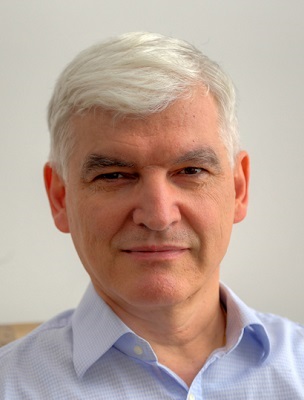 |
Professor Ivan Stojmenovic
University of Ottawa
Canada |
|
|
ABSTRACT: Existing machine-to-machine (M2M) communications incorporate a central point for gathering information, making decision, and acting. Large scale cyber-physical systems (CPS) beyond M2M concept are envisioned with the distributed actuation and in-network processing. Machine-to-machine communication aspects include data dissemination, data aggregation, reporting mechanisms for monitoring, cooperative access. Other related issues that would be explored are modeling, inter-dependency and topology control, and security and privacy. This lecture emphasizes actuation as one of important tools in the future applications of Internet of Things and Cyber Physical Systems architectures. Various existing models for wireless sensor and actuator networks are elaborated. It then concentrates on the network layer issues in wireless sensor and sensor-actuator networks. Coordination between sensors and robots, and robot to robot coordination are then covered with some concrete problem formulations. These include robot dispersion, communication aspects of robot coordination, robot task allocation, and sensor placement and relocation to improve sensing area coverage.
Ivan Stojmenovic received his Ph.D. degree in mathematics in 1985. He earned a third degree prize at the International Mathematics Olympiad for high school students in 1976. He is Full Professor at the University of Ottawa, Canada. He also held regular or visiting positions in Serbia, Japan, USA, France, Spain, Brazil, Hong Kong, Taiwan, China (Distinguished Professor, Tsinghua University in Beijing and Dalian University of Technology, 2010-2), UK (Chair in Applied Computing, EECE, University of Birmingham, 2007/8).
Stojmenovic is Fellow of the IEEE (Communications Society, class 2008), and Canadian Academy of Engineering (since 2012), and Member of the Academia Europaea (The Academy of Europe), from 2012 (section: Informatics). He was IEEE CS Distinguished Visitor 2010-11. He received 2012 Distinguished Service Award from IEEE ComSoc Communications Software TC. He was cited >13000 times. His h-index is 56 (he is among 250 computer scientists with h≥50; top h-index in Canada for mathematics and statistics). ESI Special Topics listed him #3 in papers, #9 in cites/paper, and #20 in total cites among all authors Wireless/Mobile Networks 1995-2005. One of his articles, on broadcasting in ad hoc wireless networks, was recognized as the Fast Breaking Paper, for October 2003 (as the only one for all of computer science), by Thomson ISI Essential Science Indicators http://esi-topics.com/fbp/fbp-october2003.html. Google Scholar lists him as the top researcher in parallel and distributed systems by citations, and among the top ten in two more fields: wireless networks and algorithms. He received four best paper awards at conferences (IFIP PWC 2004, SENSORCOMM 2008, CSA 2009, ICA3PP 2011) and Excellence in Research Award of the University of Ottawa for 2009. He presented a number of tutorials and invited talks. He is Tsinghua 1000 Plan Distinguished Professor (2012- 5). He is recipient of the Royal Society Research Merit Award, UK, 2007-8.
He published >300 different papers in referred journals and conferences; >40 are in IEEE or ACM journals. He co-authored ‘Wireless Sensor and Actuator Networks’ (Wiley, 2010), and (co)edited five books with Wiley: ‘Handbook of Wireless Networks and Mobile Computing’ (2002), ‘Mobile Ad Hoc Networking’ (IEEE/Wiley, 2004), ‘Handbook of Sensor Networks’(2005), ‘Handbook of Applied Algorithms’ (2008), ‘RFID Systems’ (2010). He co-authored over 40 book chapters. He collaborated with >100 co-authors with Ph.D. and a number of their graduate students from 25 different countries. He (co)supervised >60 graduate students. His current research interests are mainly in wireless ad hoc, sensor, vehicular, actuator and robot networks. His research interests also include security, parallel computing, multiple- valued logic, evolutionary computing, neural networks, combinatorial algorithms, computational geometry, graph theory, computational chemistry, image processing, programming languages, and computer science education. Stojmenovic received (as PI or co-PI) about 30 grants from Serbia, Canada, Mexico, China, USA, UK, Japan and EU, including four NSERC Collaborative Research Development and/or Strategic Grants. He was Director of the Ottawa-Carleton Institute for Computer Science (2002-2004).
He is editor-in-chief of IEEE Transactions on Parallel and Distributed Systems (2010- 2013), Journal of Multiple-Valued Logic and Soft Computing (received Certificate of Appreciation from IEEE Computer Society in 2002 for establishing and maintaining the journal), International Journal of Parallel, Emergent and Distributed Systems (T& F), and Ad Hoc & Sensor Wireless Networks (OCP), and editor of several journals including IEEE Network and ACM Wireless Networks. He recently guest edited special issues in several journals including IEEE TAC, IEEE JSAC, IEEE TPDS, IEEE Computer Magazine, IEEE Networks, IJDSN, Wireless Communications and Mobile Computing, Ad Hoc Networks.
Stojmenovic founded several workshops: WWASN at IEEE ICDCS, WiSARN at IEEE WoWMoM, IEEE/ACM CPSCom, IEEE MASS and IEEE INFOCOM, FOWANC at ACM MOBIHOC, LOCAN at IEEE MASS and MSN, LOCALGOS at IEEE DCOSS, and organized several research workshops. He is/was program chair for >30 events, including conferences FCST 2010, AdHocNow 2008, IEEE PIMRC 2008, EUC 05,08,09,10, IEEE AINA-07, IEEE MASS-04, and -07, InterSense-06, WONS-05, MSN-05 and -06, ISPA-05 and -07, and workshops at IEEE ICDCS 2003-07; IEEE LCN-05-06, HICSS, 2000, 2002, 2003; ICPDS-02; ICPP-00. He was also general co-chair, organizer, steering committee member, advisor, award, or workshop chair for ≈60 events since 2002, including IEEE ICDCS, IEEE INFOCOM, IEEE MASS, IEEE DCOSS, ACM Mobicom/Mobihoc, IEEE ICPADS, IEEE IPDPS, IFIP WMNC, IFIP WSAN, IFIP PWC. Stojmenovic served as member of >200 program committees.
|
Keynote 9: Performance Modelling and Analysis of Data-Centre Networks under Bursty and Batch Arrival Traffic |
|
 |
Professor Geyong Min
University of Bradford
U.K. |
|
|
ABSTRACT: Traffic burstiness is a ubiquitous phenomenon in modern communication networks and can deteriorate considerably the system performance and Quality-of-Service. Modelling and analysis of bursty traffic have drawn significant interest and received tremendous research efforts from both academia and industry. This talk will present various traffic models for capturing the traffic characteristics in real-world computer networks and report a new analytical performance model for Data-Centre Networks (DCNs) in the presence of bursty and batch arrival traffic that is modelled by the Compound Poisson Process with geometrically distributed batch sizes. The validity and accuracy of the model are demonstrated by comparing analytical results with those obtained through extensive simulation experiments. The analytical model is then used as a cost-effective tool to investigate the effects of bursty and batch arrival traffic on the design and performance of DCNs. Finally, the related emerging issues and future directions will be presented and discussed.
Professor Geyong Min is a Chair in Computer Science in the Department of Computing at the University of Bradford, UK. He received the PhD degree in Computing Science from the University of Glasgow, UK, and the BSc degree in Computer Science from Huazhong University of Science and Technology, China. His research interests include Next Generation Internet, Data-Centre Networks, Multimedia Systems, Modelling and Performance Engineering.
His recent research has been supported by European FP, UK EPSRC, Royal Society, Royal Academic of Engineering, and industrial partners. He has published over 200 research papers in prestigious international journals, including IEEE Transactions on Computers, IEEE Transactions on Parallel and Distributed Systems, IEEE Transactions on Communications, IEEE Transactions on Wireless Communications, and IEEE Transactions on Multimedia, and in reputable international conferences, such as ICDCS and IPDPS.
Prof. Min is an Editorial Board member of 9 international journals and serves as the Guest Editor for 18 international journals. He has chaired/co-chaired 30 international conferences/workshops. He received the Outstanding Leadership Awards from IEEE International conferences HPCC’2012, TrustCom’2012, CIT’2010, ScalCom’2009, and HPCC’2008.
|
Keynote 10: A Data-as-a-Service Framework for IoT Big Data |
|
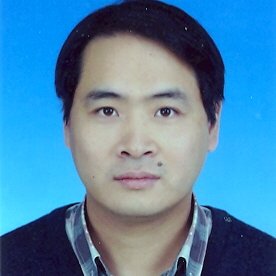 |
Professor Laurence T. Yang
Huazhong University of Science and Technology
China
St Francis Xavier University
Canada |
|
|
ABSTRACT: Internet of Things (IoT) has been widely used in our daily life. In the IoT, these smart sensing devices generate a huge amount of sensing data. The sharp increase of the diverse sensing devices has led to the various heterogeneous data types and the booming growth of the data. Practically, the valuable information, as a service for users, is mined through analyzing and processing the big data. However, a lot of challenges arise along.
This talk will present our latest research about a Data-as-a-Service framework which includes data representation, dimensionality reduction and proactive service layers aiming at representing and processing the big data generated from IoT and providing more valued smart services. Corresponding case studies in some applications such as smart home will be shown to demonstrate the feasibility and flexibility of the proposed framework.
Dr. Laurence T. Yang is a professor at School of Computer Science and Technology, Huazhong University of Science and Technology, China and Department of Computer Science of St. Francis Xavier University, Canada . His current research includes parallel and distributed computing, embedded and ubiquitous/pervasive computing.
He has published many papers in various refereed journals, conference proceedings and book chapters in the above areas including around 140 international journal papers such as IEEE and ACM Transactions. He has been involved actively in conferences and workshops as a program/general/steering conference chair and numerous conference and workshops as a program committee member. He served as the vice-chair of IEEE Technical Committee of Supercomputing Applications (2001-2004), the chair of IEEE Technical Committee of Scalable Computing (2008-2011), and the chair of IEEE Task force on Ubiquitous Computing and Intelligence (2009-now). He was in the steering committee of IEEE/ACM Supercomputing (SC-XY) conference series (2008-2011), and currently is in the National Resource Allocation Committee (NRAC) of Compute Canada (2009-now).
In addition, he is the editors-in-chief of several international journals. He is serving as an editor for many international journals. He has been acting as an author/co-author or an editor/co-editor of more than 25 books from well-known publishers. The book “Mobile Intelligence” from Wiley 2010 received an Honorable Mention by the American Publishers Awards for Professional and Scholarly Excellence (The PROSE Awards). He has won several Best Paper Awards (including IEEE Best and Outstanding Conference Awards such as the IEEE 20th International Conference on Advanced Information Networking and Applications (IEEE AINA-06), etc); one Best Paper Nomination; Distinguished Achievement Award, 2005, 2011; Canada Foundation for Innovation Award, 2003. He has been invited to give around 20 keynote talks at various international conferences and symposia.
|
Keynote 11: Privacy preserving in Cloud with Big Data applications |
|
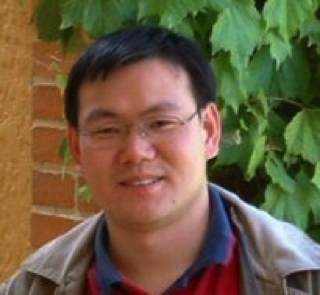 |
Associate Professor Jinjun Chen
University of Technology Sydney
Australia |
|
|
ABSTRACT: Cloud computing promises an open environment where customers can deploy IT services in pay-as-you-go fashion while saving huge capital investment in their own IT infrastructure. While cloud provides a promising infrastructure for big data applications such as medical data analysis, privacy preserving becomes critical because otherwise users may eventually lose the confidence of deploying cloud computing in practice. In this talk, we will discuss privacy preserving in general and then propose our solution to address a particular type of privacy preserving in cloud with big data applications.
Dr Jinjun Chen is an Associate Professor from Faculty of Engineering and IT, University of Technology Sydney (UTS), Australia. He is the Director of Lab of Cloud Computing and Distributed Systems at UTS. He holds a PhD in Computer Science and Software Engineering from Swinburne University of Technology, Australia. Dr Chen’s research interests include cloud computing, big data, workflow management, privacy and security, and related various research topics. His research results have been published in more than 100 papers in high quality journals and at conferences, including IEEE Transactions on Service Computing, ACM Transactions on Autonomous and Adaptive Systems, ACM Transactions on Software Engineering and Methodology (TOSEM), IEEE Transactions on Software Engineering (TSE), and IEEE Transactions on Parallel and Distributed Systems (TPDS).
He received Swinburne Vice-Chancellor’s Research Award for early career researchers (2008), IEEE Computer Society Outstanding Leadership Award (2008-2009) and (2010-2011), IEEE Computer Society Service Award (2007), Swinburne Faculty of ICT Research Thesis Excellence Award (2007). He is an Associate Editor for IEEE Transactions on Parallel and Distributed Systems. He is the Vice Chair of IEEE Computer Society’s Technical Committee on Scalable Computing (TCSC), Vice Chair of Steering Committee of Australasian Symposium on Parallel and Distributed Computing, Founder and Coordinator of IEEE TCSC Technical Area on Workflow Management in Scalable Computing Environments, Founder and steering committee co-chair of International Conference on Cloud and Green Computing, and International Conference on Big Data and Distributed Systems.
|
|
|